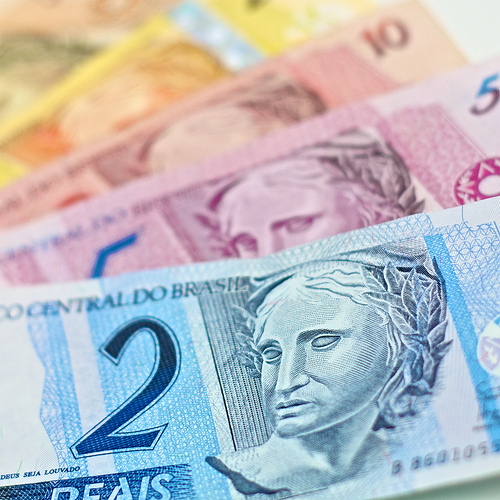RIO DE JANEIRO, BRAZIL – With less than 30 days of quarantine and amid a scenario in which the return to social contact still seems distant, more than half of all Brazilians are feeling the impact of the novel coronavirus pandemic in their pockets.
Research by the Locomotiva Institute shows that 51 percent of people claim to have lost income and are already limiting their spending.
According to the study, the impact of the crisis is virtually the same among men and women. However, by age group, it mostly affects the pockets of workers who are 50 or older (52 percent); have completed higher education (48 percent); and live in the Southeastern states (38 percent).

The Southeast region includes São Paulo and Rio de Janeiro, the two cities with the highest number of infections, according to data from the Ministry of Health.
According to Renato Meirelles, president of Locomotiva, the proportion of Brazilians who are affected, which is already high, should grow in the coming weeks. And Brazilians, he says, are expecting this to happen. “We found that two out of three professionals believe their jobs will be severely affected in Brazil, despite the fact that 73 percent of people advocate social isolation as a means to halt the spread of the disease,” Meirelles says.
The survey was conducted between April 3rd and 5th and interviewed approximately 1,000 people by phone in 72 cities across the country. The error margin is 3.2 percentage points plus or minus.
Cable TV split
At the home of chef Juliana Menezes, the effects of the economic shutdown were felt almost immediately. After giving up a restaurant partnership to begin cooking at her customers’ homes, she says she has been able to migrate most of the demand to a delivery service, which she has been running since mid-March.
Her husband, who is a salesman and in the last two years also worked as an App driver, has virtually zeroed his income. Their loss is estimated at R$3,000 per month.
“We never had savings, there is no money left for that. We cut our expenses,” says Juliana, who reduced her grocery list, replacing organic food with traditional products, for instance. “I have always spent a lot on food. I saved about R$1,000 on this new list alone,” she says.
The cut was also made in the fixed costs of services, such as cable TV subscriptions. “I cancelled the Internet, knocked on my neighbor’s door from above and offered to share the bill with him,” she says. “I’d never talked to this neighbor before and all I knew was his name was Oscar. He agreed to give it a try and it’s great”.
No meat
In Florianópolis, the micro-entrepreneur Madeleine Lisboa had to cut back on basics. With her husband unemployed and two children, she saw her cleaning agency’s demand wane in recent weeks. “As there is virtually no service, we stopped eating meat. I told the kids that lemon juice is all they can drink, which I pick from the neighbor’s yard, and I’m blending with avocados, which I also pick from the garden,” she says. “I still have my house and money to buy something, now my employees, who are paid for their services, are left with nothing. I’m handing out basic food baskets so they have something to eat.”
Under Control
Roberto Greathouse, a translator, says “I shouldn’t get anything again until July.”
The last job for translator Robert Greathouse was on March 16th. Since then, he says he has lost 100 percent of his income and is able to pay the bills through an emergency fund that he has been saving for ten years. “I’m tightly controlled and now I need to be more so. I don’t think I’ll get anything again until July,” he says. Since he began quarantining in March, Greathouse has cut spending on transport Apps, which used R$300 of his monthly budget, the gym and has started cooking: “I’m saving about R$1,000 a month”.
Adjustment
Ailton Silva, barbecue company owner, says “I’ll try to pay at least the minimum credit card bill.”
Ailton Silva owns a company that organizes and prepares barbecues in condos. The business is run by himself, his wife and his youngest daughter. His last event was 30 days ago. Since then, he has been trying to adjust his expenses to his new reality. “I’m using some of the money I was able to save. I’m glad I don’t pay rent and I have very little debt,” he says, who must pay at least the minimum of his credit card bill. “I’ll defer the electricity and water bills. I want to save money for food and medicine, in case we need it,” he says.
Less Income
Gutierres dos Passos, a telephone operator attendant, says “I borrowed money and used my cell phone as collateral.”
Gutierres dos Passos has two jobs to pay the house bills where he lives with his mother, in Volta Redonda (RJ). From Monday to Friday he works as an attendant at a telephone company. On weekends, he manages a nightclub: “The work at the nightclub was more than half of what I was paid and this is exactly what I lost two weeks ago”. With no savings and the last instalment of his car to pay, he borrowed R$500 from a digital bank. “I used my cell phone as collateral and I will pay it back in four installments of R$ 200”.
Source: O Estado de S. Paulo

